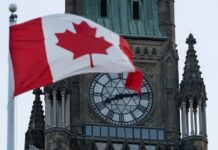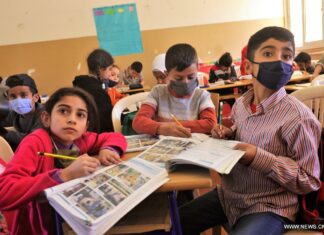
A recent TRT World report shared the plight of Saleh Kousa’s worries about his father’s fate. For weeks, he has been bringing his father to Al Rahma Hospital, one of the primary healthcare facilities in northwestern Syria. “I brought my father to Darkush Hospital as it’s the closest to our village and thank God it provides really good care and it’s the only one that serves the western region of Idlib province,” Saleh told TRT.
The importance of hospitals like Al Rahma cannot be overstated in a region where approximately a third of the population is displaced, many living in tents. These facilities serve as lifelines for countless individuals who lack access to basic necessities, including healthcare.
However, recent developments have cast a shadow over the healthcare system in liberated northern Syria. Ahmad, part of Rahma’s management, lamented, “Unfortunately, we were suddenly informed that support for this hospital has been stopped due to cuts in the World Health Organization, United Nations, and OCHA, and the same happened to many institutions and hospitals. This will have a negative impact on the people in the region.”
He, warned of dire consequences, stating, “We call upon the UN and World Health Organization to reconsider the situation as 90% of the people are under the poverty line and can’t afford medical care due to 13 years of ongoing war.”
The repercussions of these aid cuts are already being felt on the ground. Dr. Saleh, along with other hospital staff, has not received salaries since funding was slashed in early May. “Currently, we are only doing emergency tests, and patients are forced to do other tests in private labs, and many of them are passing on it as they can’t afford it,” Saleh said.
The situation is dire. Without adequate finances, hospitals are struggling to provide essential services. Rahma Hospital’s management has warned that they can only sustain their current operations for another three weeks.
Fadel Abdulghany, Executive Director of the Syrian Network for Human Rights (SNHR) which recently took part in a conference highlighting the Syrian aid crisis, emphasized the severity of the situation. “The decline in bombing operations gave the impression that violations had decreased, but this is inaccurate,” Abdulghany said. “The conflict has still generated numerous victims.” These ongoing violations by Assad and his allies both in regime-controlled areas and other parts of Syria have led to continued displacement of Syrians to the northern liberated areas.
In a TRT World interview, Abdulghany stressed the importance of sustained international support, especially for vulnerable populations. “There are 3.5 million displaced people in northwest Syria, with nearly 70% being women and children,” he explained. “Cutting aid sends the wrong message and exacerbates the suffering of the most vulnerable.”
Cutting off funding warns Abdulghany, will actually lead to an increase in many abuses, including extortion and exploitation of women and children for work and child labor, as well as the risk of predatory recruitment by military groups and pressuring tens of thousands to seek refuge, via Turkey, toward Europe and the global West.
Despite the urgent need for increased funding, pledges at international conferences have fallen short. Abdulghany expressed concern over the effectiveness of the international community’s response to the crisis. As healthcare facilities teeter on the brink of closure, thousands of lives hang in the balance. The fate of liberated northern Syria’s healthcare system remains uncertain, highlighting the urgent need for sustained support from the international community.








